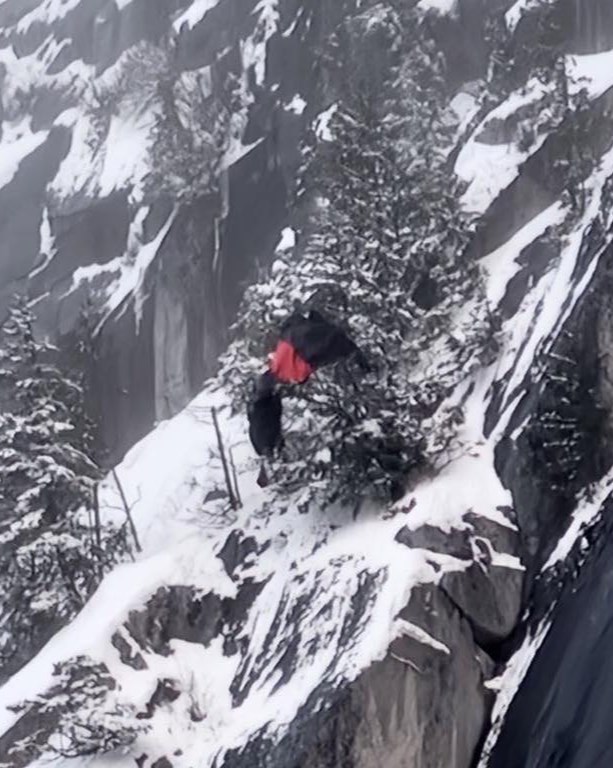Perhaps it is because most of us can’t relate to launching off the top of a mountain. Or maybe we resent the anxiety we feel watching the folks who do?
For whatever reason, some in Â鶹Éç¹ú²úseem to have an outsized angry reaction whenever paragliders, speed flyers, or BASE jumpers get themselves into trouble and need to be rescued, as happened last week.
Even during the rescue, while the individual was dangling in the cold waiting for help — at risk of falling to the ground far below — folks in the comments were already saying he should have to pay for his rescue.
We can say that these recreationists put our search and rescue volunteers at risk.
They do.
As do many who adventure in our corridor.
But, if we are going on pure concern for our search and rescue personnel, stats point to other users as more of a strain on SAR.
In 2022, volunteers responded to 123 call-outs.
Of those, 67% were rescues, and 20% were searches ( about 13% were to help other agencies and the like ).
According to, the most common call they get is for injured hikers, followed closely by mountain bikers and climbers.
The most common area they are called to is, not surprisingly, the Stawamus Chief.
The highest severity response area is the Diamond Head trail network.
And yet, during SAR’s busiest month, July, when we report often on such rescues underway, we definitely don’t see the vitriol toward those in need as we did with the person stuck on the rockface last week.
If the issue is really a strain on SAR, then why the difference?
It definitely was a complex rescue, and the weather was more severe — snowy and cold. That makes things harder on everyone.
But the rescuers themselves have repeatedly said that they don’t believe in charging those who need rescue for the service.
Should we not listen to those we profess to be angry on behalf of?
The advocates on behalf of 78 SAR groups, including Squamish’s.
The agency’s position is they “do not believe in charging anyone for search or rescue in the province of B.C., regardless of the reason they have found themselves requiring assistance.”
The organization believes the prospect of charges could deter some — especially those of lesser means — from calling for help.
“It is BCSARA’s position that any delay in the deployment of Search and Rescue (SAR) services can negatively impact in the successful outcome of a SAR mission ... The goal of our member SAR groups is to save lives.”
So, while some locals may wish for a hierarchy of those needing rescue, clearly, the rescuers don’t.






